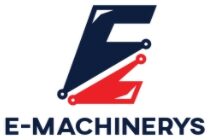In Aquitaine, the Aquinetic competitiveness cluster brought together around twenty partners who designed an electric and connected vehicle on the basis of an open-source platform. Called Ampool, this compact four-seater city car will be sold in a kit sent by La Poste. Its assembly by two professionals would not take more than four hours. Jean-Christophe Elineau, Director of Aquinetic, answered questions from Futura-Sciences.
The Mehari from the 2010s could well be electric, connected, and sold as a kit to be assembled in just four hours. This is what the designers of the Ampool, a four-seater electric car which will be unveiled at the World Intelligent Transport Show in Bordeaux, are hoping for. The project, funded by the Aquitaine region to the tune of 65,000 euros, was set up in just six months. “Bringing together all of these skills for such a project in just six months is an extraordinary human adventure,” enthuses Jean-Christophe Elineau, interviewed by Futura-Sciences.
He heads the Aquinetic competitiveness cluster which brings together a little more than twenty institutional, academic and business partners. This multidisciplinary team is currently working on the prototype of the Ampool which promises a range of 120 kilometers for a maximum speed of 80 km/h. The basis of the project comes from the Italian open-source platform OSVehicle which designed an open-source vehicle to assemble yourself called Tabby EVO. The plans for this car are made available free of charge and open-source on the basis of a Creatice Commons license.
Aquinetic has acquired a Tabby EVO prototype which serves as its working base. The chassis has been reworked to save weight by replacing certain steel parts with composite materials. The final kit will consist of fifteen elements which can be sent via La Poste to approved fitters. The complete assembly by two people will not take more than four hours assured us Jean-Christophe Elineau. An Ampool prototype has already made its first laps in May on the Pau Tarnos circuit. The final model will measure 3.5 x 1.5 m. and will have four places. Its external appearance has not yet been made public.
Less than 20,000 euros
Initially, the Ampool will be classified in the L7 category which groups together four-wheel motor vehicles whose maximum net engine power is less than or equal to 15 kilowatts. In concrete terms, this means that the car will be able to travel on all lanes open to motor vehicles except motorways. But Aquinetic intends to work later on an approval in category M1(motor vehicles designed and built for the transport of people). The marketing of the Ampool should start in 2017 at a price that will be less than 20,000 euros. And if success is there, Mr. Elineau told us that the price could drop below 15,000 euros.
Significant work awaits Aquinetic to set up an ecosystem that can support this concept. “We are creating an ecosystem with regional mobility hubs where technicians will assemble the car”. These places will also serve as display cases where future buyers can come and see the Ampool and try it out before ordering on the Internet. It is also not excluded to work directly with authorized independent garage owners.
As our interlocutor explained to us, the Ampool project is only the first part of a very ambitious plan which provides for four types of use for this electric vehicle: urban and peri-urban; tourism with the deployment of Ampool fleets in tourist areas; the agriculture to take samples; the last kilometer for logistics, delivery of small packages, meals, etc.
An autonomous car project
“The project related to agriculture is particularly close to my heart”, underlines Jean-Christophe Elineau. His vision is to design an autonomous version of the Ampool which could take samples and measurements on agricultural plots and then transmit the information in real time to computer tools (ERP) which are used in large farms. In the same spirit, Aquinetic intends to equip the Ampools with various sensors which will be used to collect data that can be used to improve traffic conditions, to measure air quality, road conditions, etc.
“It can be a vibration sensor that will detect passages in potholes and pass the information on to road services. The extent of the feedback from this type of data can help to prioritize maintenance work better,” explains the director of Aquinetic. Different sensors will be installed as standard in the Ampool and users will have the choice of activating them or not. Using a smartphone or tablet, they can view and share this information.
Beyond the commercial aspect, Aquinetic wishes to remain faithful to the principles which allowed this project to see the light of day. “We want to remain open-source and federate on the territories a community of users and experts who will contribute to evolve the concept”, confides Jean-Christophe Elineau. “This is the raison d’être of this project,” he added by way of conclusion.
